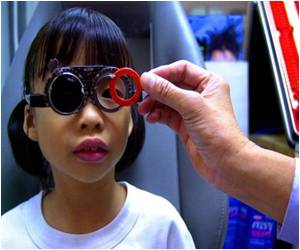
This special issue on myopia highlights scientific discoveries leading to potentially useful approaches to prevention and treatment of progressive nearsightedness in young patients. One study states that soft contact lenses with multiple areas of focus can reduce progression of myopia (nearsightedness) in children, and that multifocal lenses also affect eye growth, with effects persisting through at least two years, according to new research reported by Jeffrey J. Walline, OD, PhD, FAAO, of The Ohio State University, Columbus.
Promising New Approach to Slowing Myopia in Children Forty children with myopia, aged eight to 11 years, were randomly assigned to treatment with multifocal contact lenses or conventional, single-focus contact lenses. Myopia or nearsightedness—difficulty seeing objects at a distance—is a common problem in children, and may gradually worsen as they grow.
Multifocal contact lenses work by providing multiple areas of focus: one for near vision and one for distance vision. The concept is similar to bifocals, except that the different focus areas are arranged concentrically. The idea is that providing multiple areas of focus can influence growth of the eye, and thus the degree of nearsightedness.
After two years, children who wore multifocal contact lenses had about half as much progression in myopia, compared to those wearing single-focus lenses. Multifocal lenses were also associated with about 30 percent reduction in a key measure of eye growth: lengthening of the eye, which is responsible for the myopia.
Further randomized trials with long-term follow-up will be needed to establish the benefits of treatment, according to Dr Walline and coauthors. In the meantime, they write, "Eye care practitioners may tell parents that soft multifocal contact lenses can provide clear vision, and they may also provide myopia control, although not for everyone."
Advertisement
In the past, vision scientists and eye care professionals thought that the tendency to develop myopia was "hardwired" into genes. But in more recent years, a succession of new research has shown that environmental factors have an important influence on the development and progression of myopia.
Advertisement
These discoveries have led to promising new approaches to influencing the growth of the eye and progression of myopia. Along with multifocal contact lenses an approach called orthokeratology, or "Ortho-K"—using customized contact lenses that act like a "retainer" to reshape the cornea overnight— has also shown evidence of effectiveness.
Although previous studies have found benefits with multifocal contact lenses, the new study is the first to show an effect beyond one year. "This finding, along with the observation that corneal molding (retainer lenses) can alter the fundamental growth of the eye that leads to myopia progression, suggests that optical designs show considerable promise for slowing myopia progression in children," comments Anthony Adams, OD, PhD, Editor-in-Chief of Optometry and Vision Science.
"This feature issue represents a diverse collection of work that follows the many threads that make up modern myopia research," according to a Guest Editorial by Donald O. Mutti, OD, PhD, and colleagues. They add that a "definitive, multi-year randomized clinical trial" will add important new data on the effectiveness of "peripheral retina optical treatment" for children with myopia.
Source-Eurekalert









